Lygodium japonicum (Thunb.) Sw.
| Etymology | Genus | From Greek lygodes, referring to its twisting shoots |
|---|---|---|
| Species | From Japan | |
| Family | Schizaeaceae | |
| Synonyms | Ophioglossum japonicum Thunb., Hydroglossum japonicum (Thunb.) Willd. | |
| Common Names | Japanese Climbing Fern | |
| Status | Exotic: Naturalised | |
| Form | Climber | |
| Native Distribution | Tropical & Subtropical Asia to Caroline Islands | |
Diagnostics:
A naturalised Lygodium that can be found in urban areas. The fronds are branched in pairs. Each mature, sterile leaflet is lanced-shaped, with the base having varying degrees of lobes. The margins are serrated.
Interesting Facts:
The Japanese Climbing Fern is used traditionally to treat colds, inflammation, kidney stones and renal issues. Cho et al. (2014) found that extracts of its spores help to inhibit kidney stones in rats, making it a potentially useful preventive and therapeutic agent against this ailment.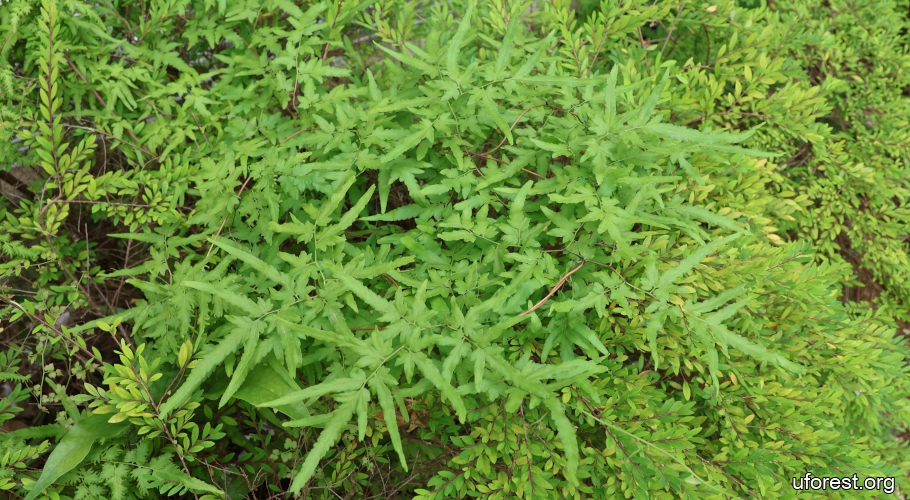
Climbing over a shrub in Sembawang (2025).
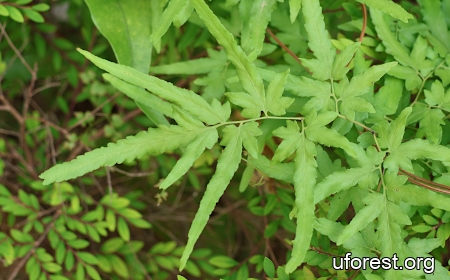
Form of a sterile frond.
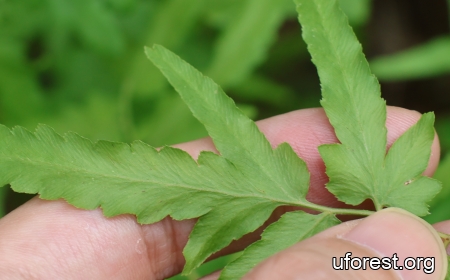
Frond underside.
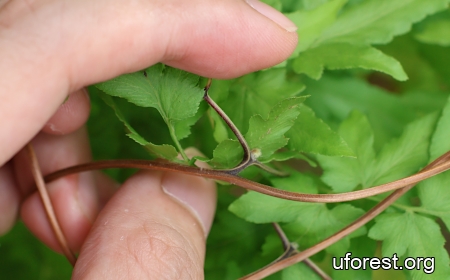
Rachis.
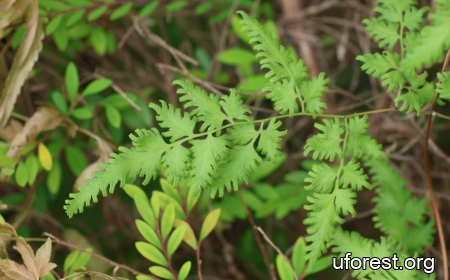
Form of a fertile frond.
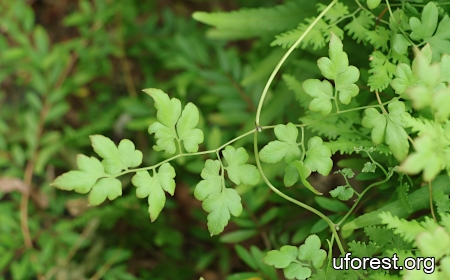
Young frond.
References
Cho, H. J., Bae, W. J., Kim, S. J., Hong, S. H., Lee, J. Y., Hwang, T.-K., Choi, Y. J., Hwang, S. Y., & Kim, S. W. (2014). The inhibitory effect of an ethanol extract of the spores of Lygodium japonicum on ethylene glycol-induced kidney calculi in rats. Urolithiasis, 42(4), 309–315.
Author: Siyang
Posted: 2025-10-27